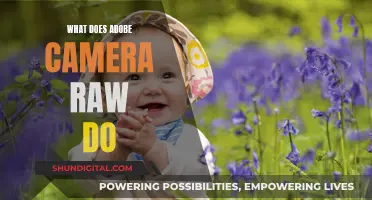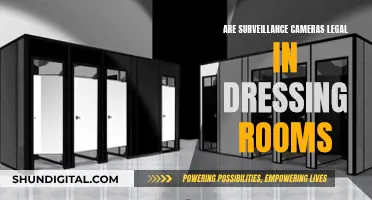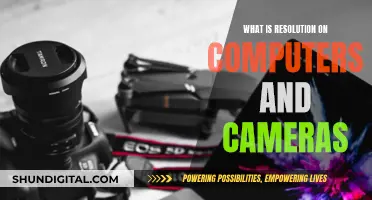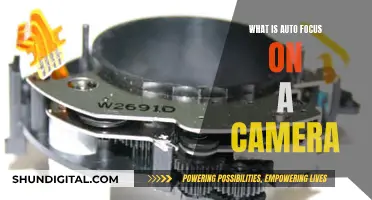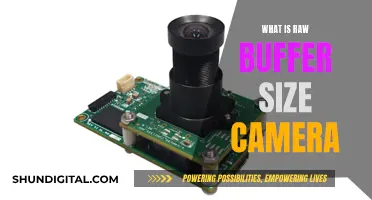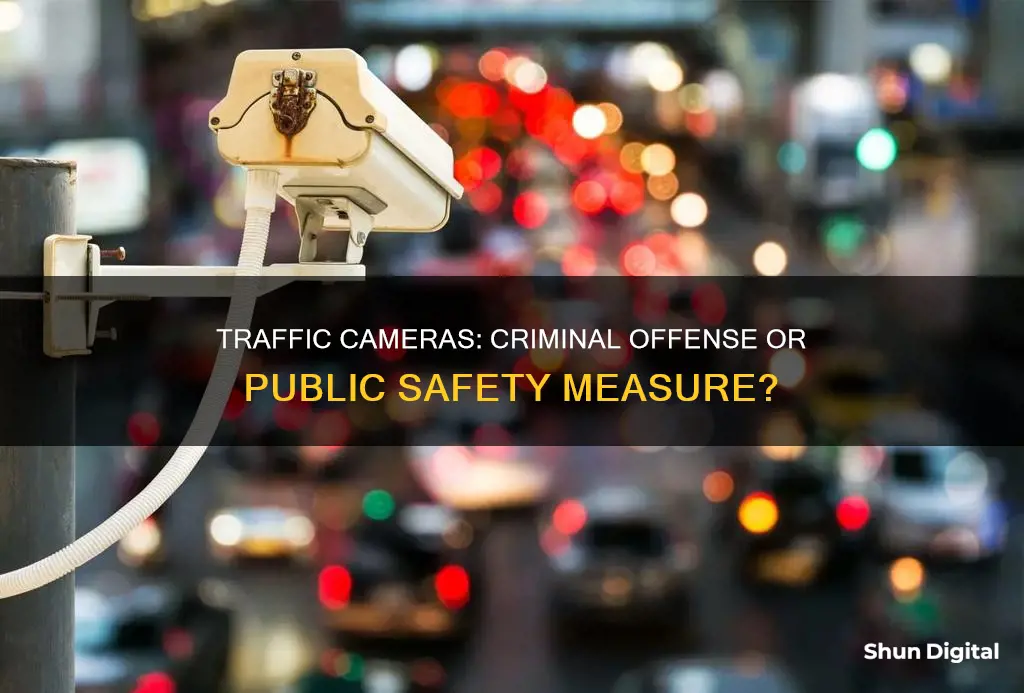
Traffic cameras are a common tool used by law enforcement to monitor and enforce traffic laws. While they are generally used to detect and record traffic violations such as speeding or running red lights, there are concerns about their legality and ethical implications. Some argue that they invade privacy, while others question their effectiveness in improving road safety. The use of traffic cameras varies across different states and jurisdictions, and they can be utilised for purposes beyond traffic law enforcement, such as crime control and surveillance. This raises questions about the boundaries of their use and the potential for abuse of power by authorities.
| Characteristics | Values |
|---|---|
| Purpose | Detect and record traffic violations |
| Camera Types | Red light cameras, speed cameras, bus lane cameras, noise pollution cameras, toll-booth cameras, turn cameras, etc. |
| Camera Locations | Intersections, near school zones, areas where speeding is common, bus lanes, toll booths, railways, etc. |
| Camera Functions | Estimate vehicle speed, capture license plate, record date, time, and location |
| Legal Status | Varies by state/jurisdiction; some states prohibit traffic cameras, some allow them with restrictions, and some treat them as valid evidence for criminal proceedings |
| Warning Signs | Warning signs are typically required in states that allow traffic cameras |
| Yellow Light Duration | States with red light cameras usually mandate a minimum duration for yellow lights |
| Ticketing Process | A police officer typically reviews footage and decides whether to issue a citation; the registered vehicle owner receives the ticket by mail |
| Fighting a Ticket | Registered owners can provide evidence that they were not driving, such as an affidavit or police report |
| Penalties | Typically lower than non-camera traffic citations; fines, driving school, or "points" on a license |
What You'll Learn

Traffic cameras and privacy rights
Traffic cameras are a highly controversial topic, with many people questioning whether they violate privacy rights. These cameras, which are typically mounted beside or over a road or installed in an enforcement vehicle, are used to detect and record traffic violations, including speeding, running red lights, and unauthorised use of bus lanes. While some argue that they are an effective tool for enforcing traffic laws and improving road safety, others raise concerns about the potential invasion of privacy and the legitimacy of safety efforts.
Effectiveness of Traffic Cameras in Improving Road Safety
A worldwide review of studies found that speed cameras led to a significant reduction in fatal and serious injury crashes, with similar results observed in the UK. The British Medical Journal reported that speed cameras were effective at reducing accidents and injuries and recommended their wider deployment. In addition, a 2017 LSE study concluded that installing 1,000 more cameras on British roads could save up to 190 lives annually.
Privacy Concerns and Legitimacy of Safety Efforts
Despite the proven effectiveness of traffic cameras in improving road safety, several organisations, including the American Civil Liberties Union (ACLU), have raised concerns about the potential invasion of privacy and the legitimacy of safety efforts. The ACLU argues that the use of red-light camera systems should be halted or delayed until due process and privacy issues are properly addressed. They highlight the possibility of "mission creep", where data collected by these cameras could be used for purposes beyond tracking reckless drivers, leading to privacy abuses.
Issues with Enforcement and Fairness
In addition to privacy concerns, there are also issues with the enforcement and fairness of traffic cameras. In some cases, the tickets are sent to the owner of the vehicle, who may not have been the person committing the violation. This shifts the burden of proof to the owner to prove their innocence, which is a violation of the principle that an accused person is considered innocent until proven guilty.
Furthermore, there have been concerns about the potential conflict of interest when private contractors are involved in issuing tickets, as it may create an incentive to "game" the system and increase revenue rather than genuinely improve traffic safety. This can generate public cynicism and suspicion, undermining the ideal of disinterested justice.
Varying Laws and Regulations Across States
It is important to note that the laws and regulations regarding traffic cameras vary across different states in the US. While some states prohibit their use entirely, others allow them with certain restrictions and requirements. For example, Texas permits red light cameras by city ordinance but prohibits speed cameras.
While traffic cameras have proven effective in improving road safety, particularly in reducing accidents and injuries, there are valid concerns about their potential impact on privacy rights. To address these concerns, it is crucial to have proper regulations and safeguards in place to ensure that data collected by these cameras is used solely for its intended purpose and that the rights of individuals are respected. Additionally, issues related to enforcement and fairness, such as the burden of proof, need to be carefully considered to ensure that the use of traffic cameras is fair and just.
Overnight Charging: Is It Damaging Your Camera Battery?
You may want to see also

Traffic misdemeanours
- Driving with a suspended, revoked, or expired license.
- Driving while intoxicated by alcohol or under the influence of drugs (DUI/DWI).
- Reckless driving, which involves operating a vehicle with a flagrant disregard for the safety of others and their property.
- Hit and run, which involves colliding with another vehicle or piece of property and leaving the scene without providing contact information or checking for damages.
- Driving without valid auto insurance.
- Speeding excessively, typically defined as driving 11 or more miles per hour over the speed limit.
It is important to note that the specific laws and penalties related to traffic misdemeanours can vary by state and jurisdiction. For example, in some states, speeding tickets are considered simple traffic violations and do not result in criminal charges, while in other states, excessive speeding may be classified as a misdemeanour.
Unlocking RAW Potential: Unconventional Uses for Your Camera
You may want to see also

Traffic felonies
Traffic cameras are used to enforce traffic laws and detect violations such as speeding, running red lights, and failing to pay tolls. While these violations are typically classified as infractions, more severe consequences can occur if they result in injury or destruction of property, potentially elevating them to misdemeanour or felony charges.
Felony traffic violations are the most serious type of traffic offence and are punishable by more than a year in prison or even death. These charges carry long-term impacts, affecting various aspects of daily life, including employment, housing, and driving privileges. Examples of felony traffic violations include:
- Running a red light or stop sign and maliciously hitting another vehicle, especially if the occupant of the other vehicle dies.
- Driving with a revoked licence.
- Leaving the scene of an accident (hit and run).
In addition to felony traffic violations, there are also misdemeanour traffic violations, which are less serious crimes. These are generally punishable by a fine or jail time of less than a year and may include:
- Driving under the influence of alcohol or drugs.
- Failing to stop at the scene of an accident.
- Driving without a valid driver's licence or insurance.
The consequences of misdemeanour convictions are generally less harsh. For example, a person with a misdemeanour conviction can still serve on a jury, practice their profession, and vote. However, they may face restrictions on certain rights, such as the right to own guns or serve in the military.
It's important to note that the classification of traffic offences and the associated penalties may vary by state. Seeking legal advice from a criminal defence attorney is recommended to understand the specific implications of felony traffic violations.
Uncover Camera Raw's Masking Magic
You may want to see also

Red light cameras
While red light cameras are used in many jurisdictions, their use remains controversial. Some people argue that they improve road safety and reduce accidents, while others view them as an infringement on civil liberties and a way for cities to increase revenue through fines.
In the United States, the laws regarding red light cameras vary by state. Some states, like Texas, prohibit the use of red light cameras altogether, while others, like California, permit their use. Some states, such as Arizona, allow the use of cameras as long as it complies with state standards. Additionally, some states require warning signs to be posted, informing drivers that cameras are in use.
It's important to note that while red light camera violations may result in civil fines, they are generally not considered criminal offenses. The procedures for issuing camera tickets can vary, but typically involve a police officer reviewing the footage and making the final decision on whether to issue a citation.
Quickly Edit Multiple Photos in Camera Raw
You may want to see also

Speed cameras
However, there are also some concerns and controversies associated with speed cameras. Some people argue that they are used for "revenue-raising" rather than improving road safety. In some cases, private contractors are paid based on the number of tickets they issue, which can create a potential conflict of interest. Additionally, there may be issues with the accuracy of speed cameras, as they can malfunction and issue incorrect tickets.
The use of speed cameras varies across different jurisdictions. In the US, 19 states and the District of Columbia have passed laws permitting the use of speed cameras, while 9 states have prohibited their use. In Maryland, for example, speed cameras are legal and can be used in school zones, residential areas, work zones, and other specified areas.
When a vehicle is caught speeding by a speed camera, a photograph is taken, including the date, time, location, vehicle speed, and license plate. A police officer then reviews the photograph and identifies the vehicle's registered owner. The owner of the vehicle will receive a citation by mail, which may include a fine and/or demerit points.
Charging Your Lumix DC Vario: A Step-by-Step Guide
You may want to see also
Frequently asked questions
Traffic cameras are used to detect and record traffic violations. The most common types are red light cameras and speed cameras. Red light cameras are set up at intersections to catch drivers who run the signal, while speed cameras are usually set up near school zones or areas where drivers often exceed the speed limit.
Traffic cameras themselves are not considered a criminal offense. However, the footage captured by these cameras can be used as evidence in traffic violation cases, which may result in fines, points on a driver's license, or even criminal charges depending on the severity of the violation.
The laws regarding the use of traffic cameras vary by state and country. Some states prohibit their use entirely, while others allow them with certain restrictions and requirements. In most states, there must be warning signs posted to indicate the use of traffic cameras, and the yellow traffic lights must remain yellow for a specific minimum length of time when red light cameras are in use.


